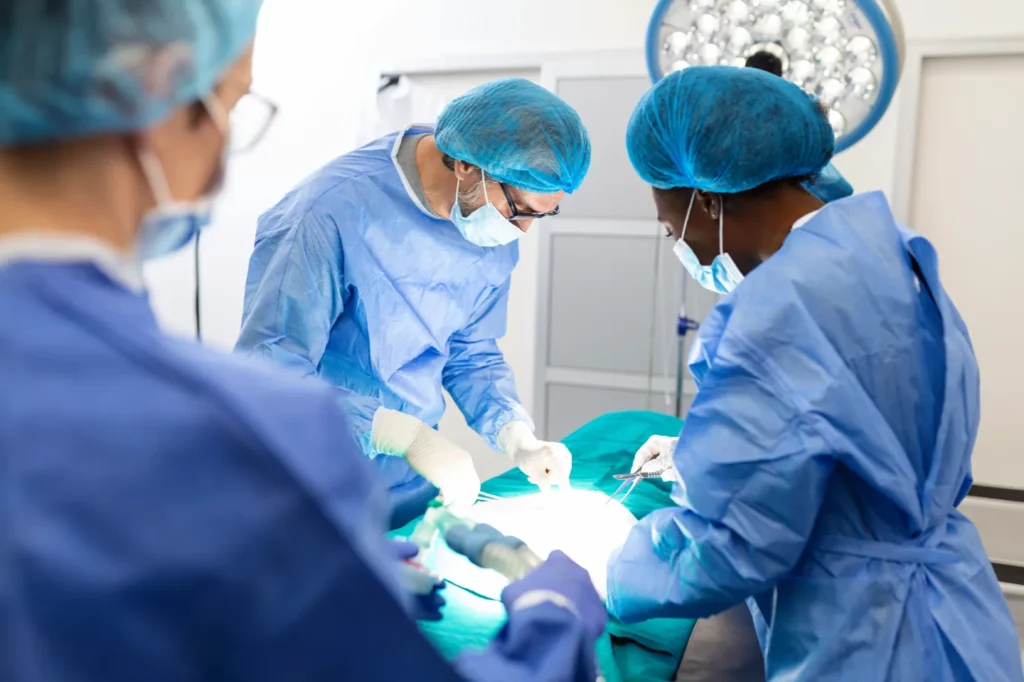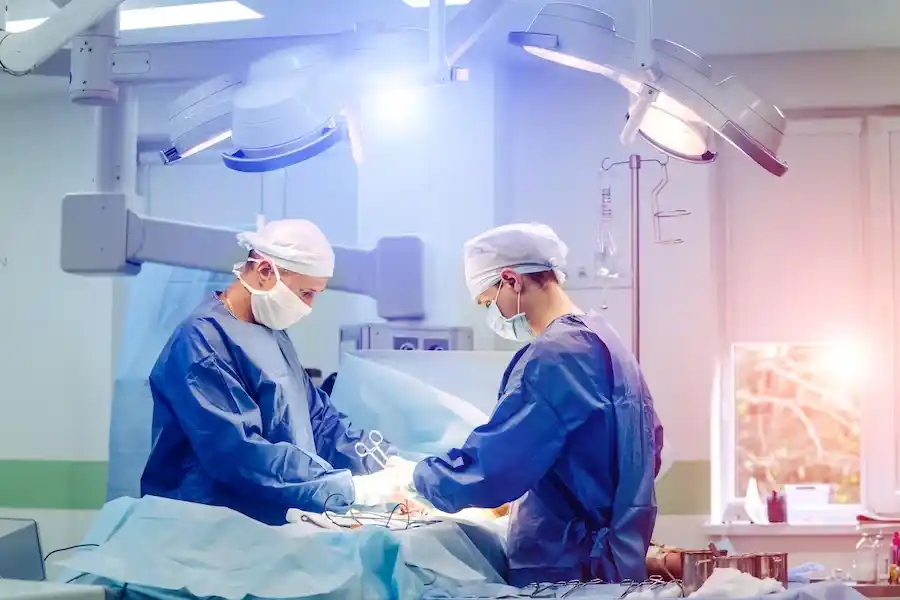Inguinal Hernia
Heal Your Hernia Today!
Heal Your Hernia Today!
About Inguinal Hernia
An inguinal hernia is a type of hernia that occurs in the groin area, where the abdomen meets the thigh. This type of hernia occurs when a portion of the intestine or other abdominal tissue protrudes through a weak spot or tear in the muscles of the abdominal wall, and into the inguinal canal. The inguinal canal is a passageway through the abdominal muscles that contains blood vessels and the spermatic cord in men, and the round ligament in women.
Causes and symptoms of Inguinal Hernia
Inguinal hernias are more common in men than in women, and they can be caused by a variety of factors, including heavy lifting, straining during bowel movements or urination, and chronic coughing.
Symptoms of an inguinal hernia can include a bulge or swelling in the groin area, discomfort or pain when bending over, coughing, or lifting heavy objects, a feeling of pressure in the groin, and aching or burning sensations in the affected area.

Treatment for Inguinal Hernia
Treatment for an inguinal hernia typically involves surgery to repair the weakened area of the abdominal wall and to return the herniated tissue to its proper location. In some cases, surgery may be done using a laparoscope, which involves making small incisions and using a tiny camera to guide the surgical instruments. In other cases, open surgery may be necessary to repair the hernia. After surgery, most people can resume normal activities within a few weeks, although it may take several weeks for a full recovery. Without treatment, an inguinal hernia can cause serious complications, such as bowel obstruction or strangulation, so it is important to seek medical attention if you suspect you have a hernia.
Open surgery
Open surgery for inguinal hernia repair involves making a single, larger incision near the site of the hernia. The surgeon will then carefully push any protruding tissue back into the abdominal cavity and repair the hernia using sutures or surgical mesh. This type of surgery is typically performed under general anesthesia, which means you will be unconscious during the procedure. The surgery may be performed as an outpatient procedure, meaning you will be able to go home the same day, or you may need to stay in the hospital for a short period of time depending on your individual circumstances.

Laparoscopic Surgery
Laparoscopic surgery involves making several small incisions and using a laparoscope, which is a small, lighted instrument with a camera, to guide the surgeon during the procedure

Laparoscopic approaches
TAPP (transabdominal preperitoneal) and TEP (totally extraperitoneal) are two laparoscopic approaches used for inguinal hernia repair.
The TAPP approach involves creating a small incision in the abdomen and entering the peritoneal cavity. The surgeon then uses specialized instruments to create a pocket between the peritoneum (the inner lining of the abdominal cavity) and the posterior abdominal wall. The hernia is then repaired using a mesh, which is placed over the defect and secured in place. The peritoneum is then closed, and the incision is closed with sutures or staples.
The TEP approach, on the other hand, is performed entirely outside of the peritoneal cavity. The surgeon creates small incisions in the lower abdomen and inserts a laparoscope and specialized instruments through these incisions. The surgeon then creates a space between the muscles and the peritoneum and places a mesh over the hernia defect to reinforce the area. The incisions are then closed with sutures or staples.
Both TAPP and TEP are minimally invasive techniques that offer many benefits over traditional open surgery, including smaller incisions, reduced pain, and shorter recovery times. However, the choice of which approach to use depends on the patient’s individual case and the surgeon’s preference and expertise.
Facts about Inguinal Hernia
- Inguinal hernias are the most common type of hernia, accounting for up to 75% of all hernias.
- Inguinal hernias can be diagnosed through a physical exam or imaging tests such as ultrasound or MRI.
- Treatment for an inguinal hernia typically involves surgery to repair the weakened area of the abdominal wall and to return the herniated tissue to its proper location.
- Recovery time after surgery can vary depending on the individual and the type of surgery performed, but most people can return to normal activities within a few weeks.
- If left untreated, an inguinal hernia can lead to serious complications such as bowel obstruction, strangulation, or damage to the intestines or other organs.
